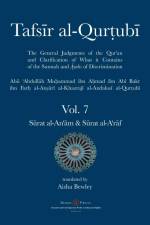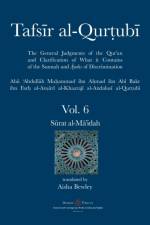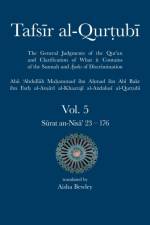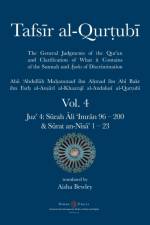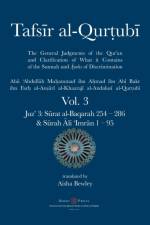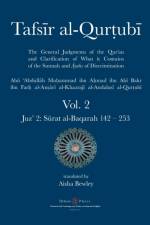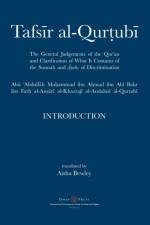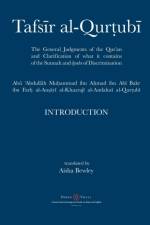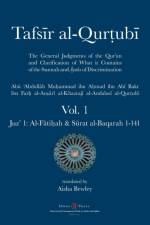- The General Judgments of the Qur'an and Clarification of what it contains of the Sunnah and āyahs of Discrimination
av Abu 'abdullah Muhammad Al-Qurtubi
465,-
The tafs¿r of al-Qur¿ub¿ is perhaps one of the most compendious of them all and is certainly among the most famous. As its title, al-J¿mi' li A¿k¿m al-Qur'¿n - The General Judgments of the Qur'an, suggests, its main focus is on the rulings and judgments to be found in the Qur'¿n. However, in the course of doing that, al-Qur¿ub¿ examines all the relevant sciences necessary, such as the ¿ad¿th pertaining to the ¿yahs, events in the s¿rah, what the Companions, their Followers and other noted people of knowledge said about the ¿yahs, essential aspects of Arabic etymology, syntax and usage, copiously illustrated by examples, and much more.In this introduction, the author lays out some of the key themes of the Qur'an: Its virtues and the reciter's; how to recite it; cautioning against showing off; what the one who knows the Qur'an must do and not neglect to do; learning its syntax; the excellence of tafs¿r; the excellence of the bearer of the Qur'an; the respect and esteem mandatory for the Qur'an; threats against engaging in tafs¿r by means of opinion (ra'y); the Book being explained by the Sunnah; how to learn and understand the Book of Allah and the Sunnah of His Prophet s; that it used to be easier to act by it than to memorise it; the words of the Prophet s; "The Qur'an was revealed in seven äruf (dialects/modes)"; the seven readings; the collection of the Qur'an; the memorisation of the Qur'an by the Companions at the time of the Prophet s; the order of the s¿rahs and ¿yahs of the Qur'an; the meaning of the words s¿rah, ¿yah, kalimah (word) and ¿arf (letter); non-Arabic words in the Qur'an; the inimitability of the Qur'an; hadiths forged about the excellence of the s¿rahs of the Qur'an; refutation of those who attack the Qur'an; the Seeking Refuge with Allah from Shay¿¿n and the Basmalah.Diwan Press will be publishing the entire tafs¿r in 30 volumes along with the Introduction.Ab¿ Müammad ibn A¿mad ibn Ab¿ Bakr ibn Far¿ al-An¿¿r¿ al-Khazraj¿ al-Andalus¿ al-Qur¿ub¿ (610-11 AH/1214 CE - 671 AH/1273 CE) was born in Cordoba in Spain, but moved in 1236 to Cairo in Egypt, where he lived until his death. He was M¿lik¿ in fiqh, and although he composed other works, he is most famous for this tafs¿r.Aisha Bewley is the translator of a large number of classical works of Islam and Sufism, often in collaboration with Abdalhaqq Bewley, notably The Noble Qur'an - a New Rendering of Its Meanings in English; Muhammad, Messenger of Allah - the translation of Q¿¿¿ 'Iy¿¿'s ash-Shif¿'; the Muwä¿a' of Imam M¿lik ibn Anas; and Imam an-Nawaw¿'s Riy¿¿ ä-¿¿li¿¿n.

